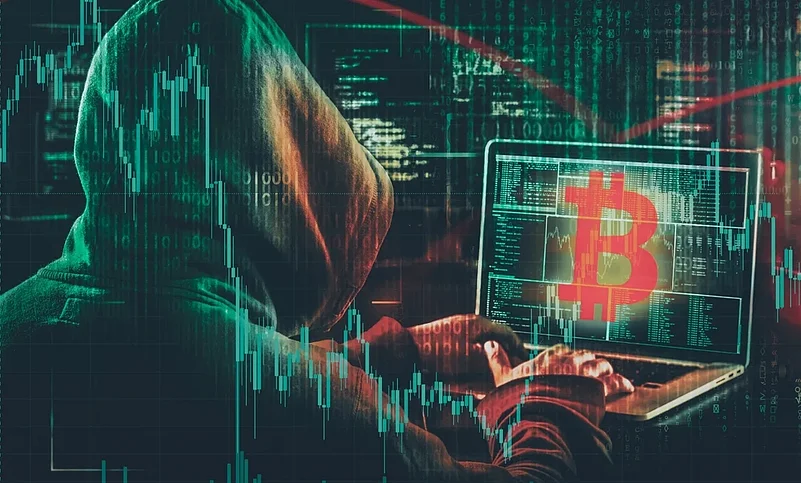
Summary of this article
Rajya Sabha report mentions crypto 15 times, all negatively.
Crypto linked to scams, laundering, ransomware, and job frauds.
Committee urges stricter regulation, cross-border cooperation, and public awareness.
A parliamentary standing committee report on cybercrime has sounded an alarm over the practice of using cryptocurrency for fraud on the internet, money laundering, and ransomware attacks. The Rajya Sabha Standing Committee on Home Affairs' 254th report, titled Cyber Crime – Ramifications, Protection and Prevention, was tabled in Parliament on August 20, 2025. It referred to crypto and cryptocurrency about 15 times, and they are all adverse mentions of scams, laundering, and exploitation by foreign criminal gangs.
Looking at the report, crypto educator Kashif Raza tweeted on social platform X, "The Standing Committee has tabled its report on CYBER CRIME Ramifications, Protection & Prevention. This report mentions CRYPTO 15 times, and none of them are in a positive way."
Increase in Financial Scams
The Ministry of Home Affairs informed the committee that a total of 53.9 lakh complaints had been made to the National Cybercrime Reporting Portal since its inception in August 2019 and till November 2024. The overall amount revived through these cases was around Rs 31,594 crore. Nearly 85 per cent of them were cyber-financial crimes, with the majority being transactions in cryptocurrency or money laundering frauds.
The report pointed out the way advanced cybercrime groups increasingly employ crypto wallets to send fraudulent requests. The amounts are often laundered via mule accounts, peer-to-peer transfers, and shell companies located outside the country prior to being cashed out or converted into commodities such as gold. The Central Bureau of Investigation (CBI) quoted instances where activities involving human trafficking were financed and conducted through crypto channels, hence making them harder to detect and recover.
Ransom Demands Made in Digital Assets
Ransomware has been described as one of the most prevalent forms of cybercrime. The committee recorded several instances where critical infrastructure, such as hospitals, universities, and public research institutions, were crippled by ransomware. Hackers issued ransom demands in cryptocurrency, which provided anonymity and was hard to enforce across borders.
Information from government organisations such as the Indian Computer Emergency Response Team (CERT-In) and the Indian Cyber Crime Coordination Centre (I4C) indicated that many of these ransomware attacks had been launched by foreign terrorist organisations, and raised concerns regarding cyber warfare and national security.
Youth Exploitation and Job Scams
The report associated significant prominence to crypto-related job scams. The Centre for Development of Advanced Computing (C-DAC) has told the committee that unemployed youth were being induced into fake employment prospects, primarily to go abroad. Upon being baited outside the country, they were compelled to work in foreign syndicate-operated fake factories.
These rackets used crypto wallets to transfer money from fraud victims around the world. Some of these call centres also cheated Indian citizens by operating fake crypto investment schemes and refund scams, causing enormous financial losses.
The committee observed that Indian youth who became victims of such fraud were normally socially stigmatised, causing psychological trauma. It further stated that the anonymity of cryptocurrency transactions is making it increasingly challenging to trace the money trail and bring the culprits to book.
Cryptojacking and Emerging Cyber Threats
Other than money laundering and fraud, the report identified cryptojacking as an emerging cybercrime. It is done through silently hijacking servers, smartphones, or computers to mine cryptocurrency without anyone's knowledge. The committee further noted that such attacks drain resources, result in increased electricity usage, and open systems to further exploitation.
It also pointed out the growing phenomenon of the availability of crime-as-a-service marketplaces on the dark web, where ransomware kits and phishing kits are being sold commercially. Some of these packages also now include the capability of cryptocurrency laundering, referred to as "Money Laundering as a Service". This trend lowers the barrier of entry for even technologically illiterate criminals.
International Laundering and Enforcement Gaps
The report detailed how cyber-criminals exploit global financial imbalances. Frauds are routed via offshore crypto exchanges or laundered via peer-to-peer websites. No bilateral data-sharing with some nations is an obstacle in investigations. The Ministry of External Affairs and the CBI informed the committee that extradition is delayed owing to the fact that there are multiple legal systems, and suspects of cybercrime make use of these loopholes to escape conviction.
Among the examples provided was Indian nationals' employment in Southeast Asian scam centers, where Indian SIM cards were sent abroad to be used in the creation of fake WhatsApp accounts for fraud. Payment from victims was then laundered through crypto wallets before being withdrawn abroad.
Recommendations by the Committee
While stating that India has significantly fortified its cybercrime infrastructure with tools like the Indian Cyber Crime Coordination Centre and the National Cybercrime Reporting Portal, the committee observed the misuse of cryptocurrency as a singular challenge. It recommended:
Stricter monitoring of virtual asset service providers.
Cross-border arrangements for sharing real-time intelligence.
Public campaigns educating the public against crypto-based frauds.
Multilateral efforts to prevent money laundering through crypto exchanges and wallets.
The committee said that the application of cryptocurrency in cybercrime is what underscores the imperative need for pre-emptive regulation. Without stricter regulation, it warned, crypto would be an easy pick among fraudsters, undermining confidence in India's digital economy and compromising national security.










